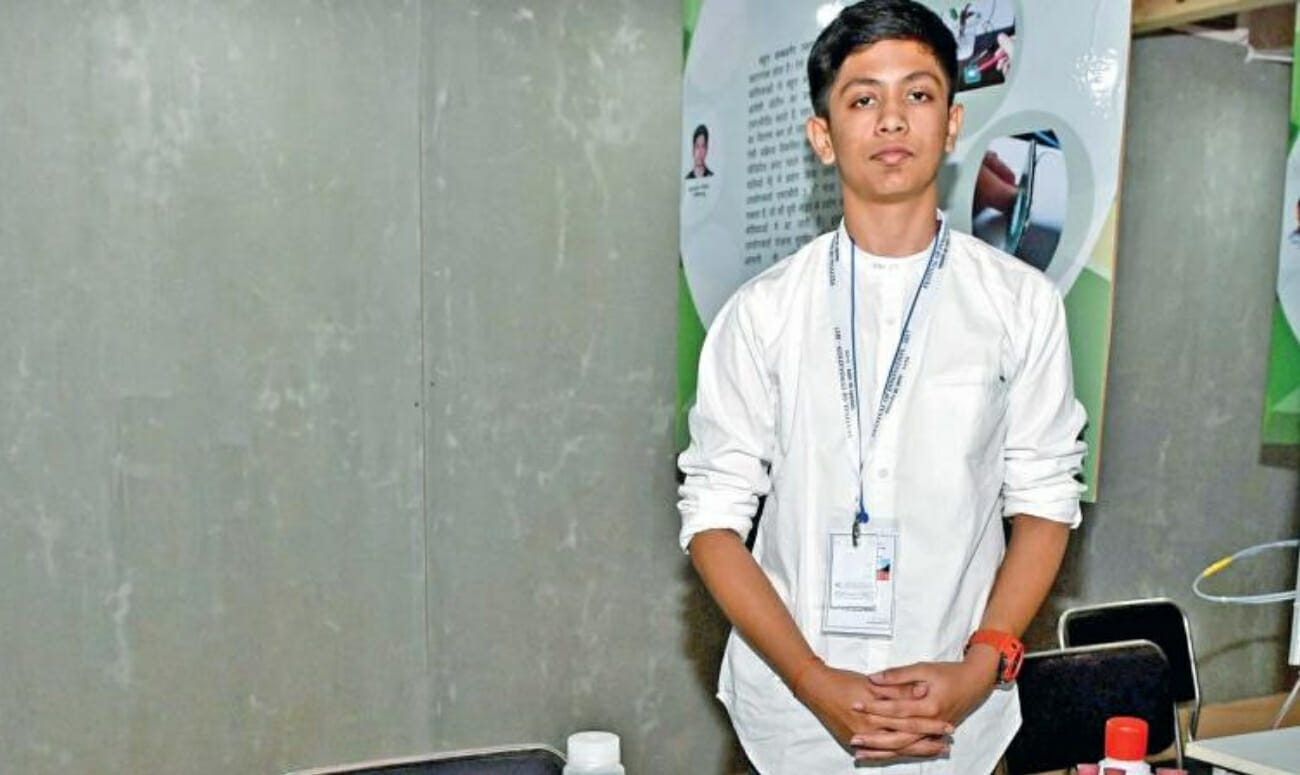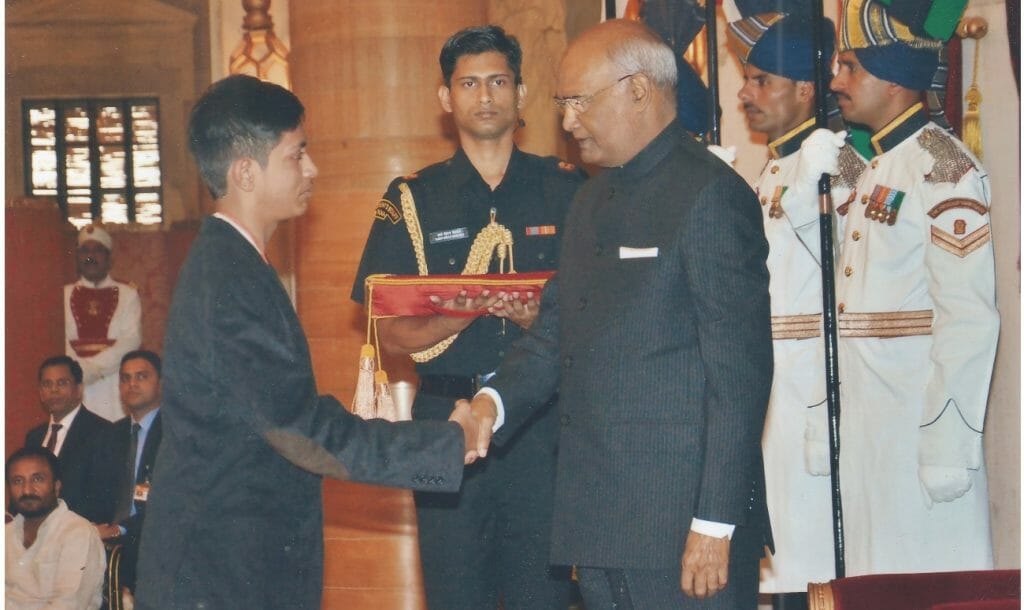A class X boy from The Ashok Leyland School, Hosur, Tamil Nadu, has made many people drop their jaws with his fantastic innovation. Akash Manoj, who aims to study cardiology at the esteemed All India Institute of Medical Sciences in Delhi, in an ardent reader of medical literature and is inclined towards the field of cardiology.
The 16-year-old boy has been busy over a the past few years building a device that can help detect a silent heart attack and has been successful in doing so. Providing a solution for such a crucial yet a less spoken affair in the cardiac field has left many people in complete awe of Akash.
This invention is the first step for him and he intends to keep pushing his boundaries and creating solutions for many such problems in medical science.
What triggered the thought
Akash is a dedicated student and has a special place for medical science in his heart. He has attended several scientific conventions across the globe. However, when the 13-year-old youngster witnessed his grandfather, who was a diabetic patient, succumb to a silent heart attack, he was determined to do something about it. That’s where his search for a fix began.
Given the complication existing within the field of cardiology, it goes without saying that this was a herculean feat for him. During a conventional heart attack, there are several symptoms that can help pinpoint that the patient is at a risk. But in the case of a silent heart attack, the symptoms are ambiguous; especially, when it comes to patients suffering from diabetes, high blood pressure, high cholesterol.
Digging his feet deeper into the study
Akash began scavenging through tons of medical literature. He even visited the Indian Institute of Science in Bengaluru, which was more than an hour away from his place. In an interview with Hindustan Times, he says, “Journal articles are expensive, so visiting the libraries was the only way I could do it. Otherwise, it would have cost more than a crore (of rupees) for the amount I read. I was always interested in medical science and I liked reading the journals…cardiology is my favourite.”
During his research, Akash came across the statistics provided by Harvard Medical School study in 2017, stating that 50% of the cases are those of silent heart attacks and nearly 8 million people fall prey to this asymptomatic condition each year.
He wanted to gain access to the labs at Indian Institute of Science in Bengaluru for his research but even having this access was not easy. He wrote to nearly 200 professors for the same and only one of them responded. Today he has earned his access to the laboratories of national importance.
A painstaking process
Akash was pretty clear in his head that he wanted to create a device that is – wearable, inexpensive, rapid, simple, sensitive, selective, non-invasive and portable. The current techniques employed by the medical field are more than 60 years old and not proactive. Since the solutions existing today are post care measures after the irreversible damage has occurred, Akash’s main thought was to craft a device that could provide early detection and self-diagnosis.
To understand how this takes place, Akash had to first study the signals that the heart tries to send out to the body prior to heading for an attack. These indicators are sent out by the cardiac biomarkers. As the heart begins to lose out on the oxygen flow it starts sending various signals. However, it was imperative for Akash to detect a cardiac biomarker that would enable early detection. Though it may sound like an easy task but to be able to comprehend the elevation levels in the proteins in the bloodstream was a huge challenge.
During his study, he came across a list of 8000 different types of different proteins that can be pointed out before a heart attack. Zeroing down to the most prominent cardiac biomarker from these could have left one in a daze, but not Akash. He finally found his way ahead with a fatty acid binding protein surfacing as the best indicator.

Building a boon
Akash’s breakthrough with the device happened in his high school bio class. The young lad has taken a remarkable step by building a device that can predict a silent heart attack up to 6 hours in advance. Patients who are diabetic, often suffer from nerve damages and as a result are unable to track any abnormality in their functioning when it comes to a heart attack. This device will prove to be a life-saving boon for all of them.
The best part about this device is that it is non-invasive. This means that one doesn’t have to rush into a hospital for a blood test to know if they will be at the risk of an attack. It’s inexpensive, portable and works 24 by 7. Initially, the only way to detect a heart attack was an electrocardiogram or opting for the process of an echocardiogram. But thanks to Akash, we may very soon be able to have access to an affordable device that will resolve this matter, without having to go through tons of expensive tests.
The silicon patch can be worn on the wrist or on the back of the ear. The device releases a small, positive electric impulse which draws the negatively charged protein released by the heart to signal the coming
of a heart attack. Once an elevation is observed in the quantity of this protein- FABP3, the patient at risk must seek immediate medical assistance.
Going great guns
The device created by Akash will be made available in the market at price of Rs.900/- soon. He has his global patent pending in 6 countries including India. The device has received a clinical validation from AIIMS (New Delhi ), Tokyo University of Science (Japan) and Royal Society of Medicine (London). He has also signed an MOU with AIIMS (New Delhi) and Ministry of Health and Family Welfare (Govt. of India) for the commercial production of the device.
Currently, the device performance reports state 96.46% accuracy. Akash plans to launch two variants of this device in the market. One variant which can provide the complete digital analysis and the other variant being a simpler version which can be given to the people in the rural areas. The simpler version of the device will simply vibrate when the biomarker shoots up.
Akash’s achievement today is the fruit of his absolute hard work. A young boy, who could have enjoyed his life just like any other teen of his age, has spent the past few years towards building a solution for those people who would have otherwise lost their life to silent heart attacks.
It’s his sheer determination to bring about a change in the way the diagnostic protocol works, that led him to scale this mountain of a challenge. Last year, in November, he was conferred with the gold medal for National Child Award for exceptional achievement by the President of India, Ram Nath Kovind and has several other awards to his credit.
While one may think that this is his only gift to the field of Science, Akash stands with his head held high and eyes set on the goal that he wants to be of greater help to the society and build many more such devices for the people. Kids, like Akash, defy the fact that one has to wait for the times to be right. It’s citizens like him that are reshaping the world for the better and deserve a salute for their passion, persistence, and performance.
READ MORE: HOW YOU CAN MAKE EACH DAY COUNT TO LIVE YOUR BEST LIFE































